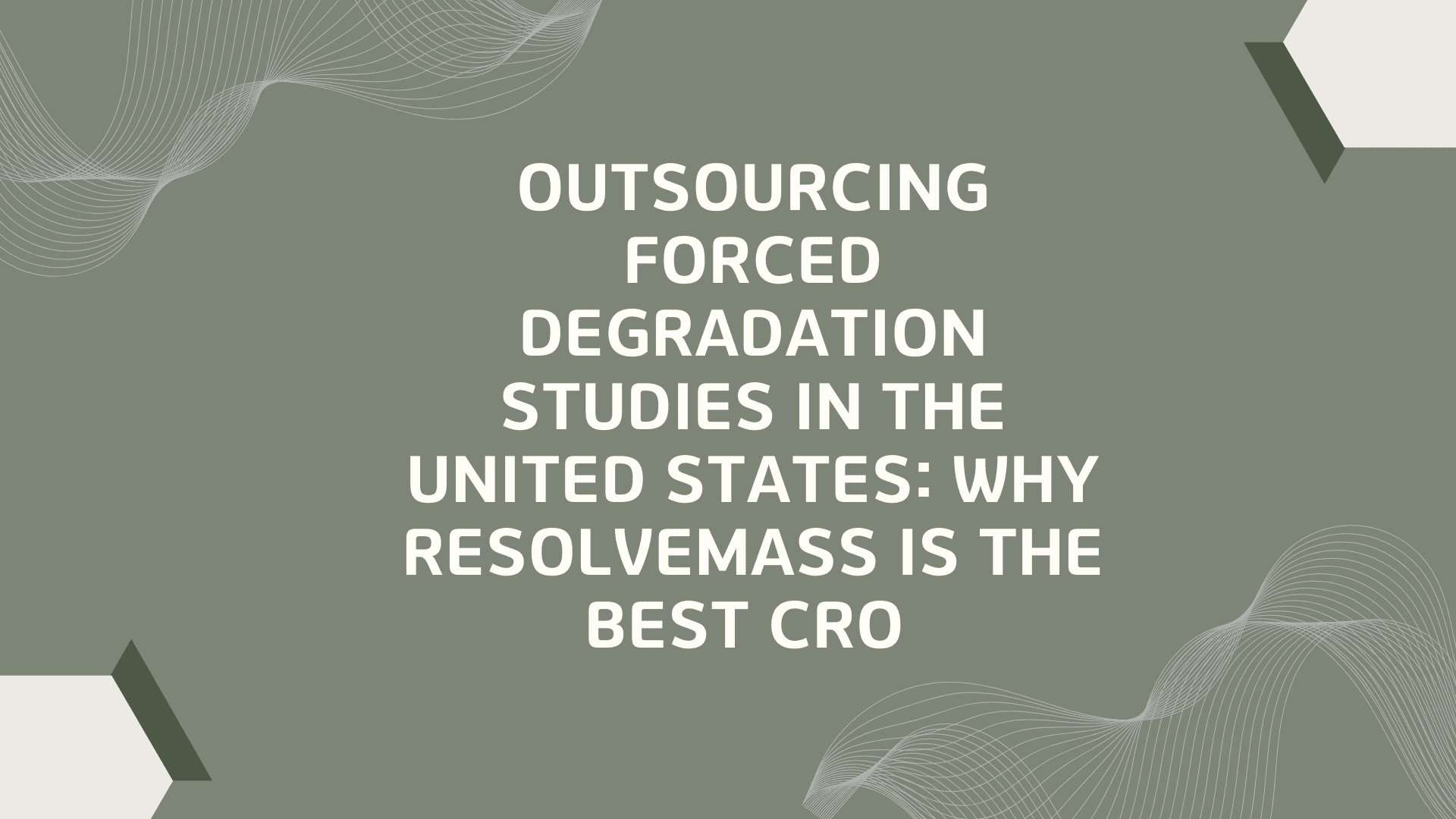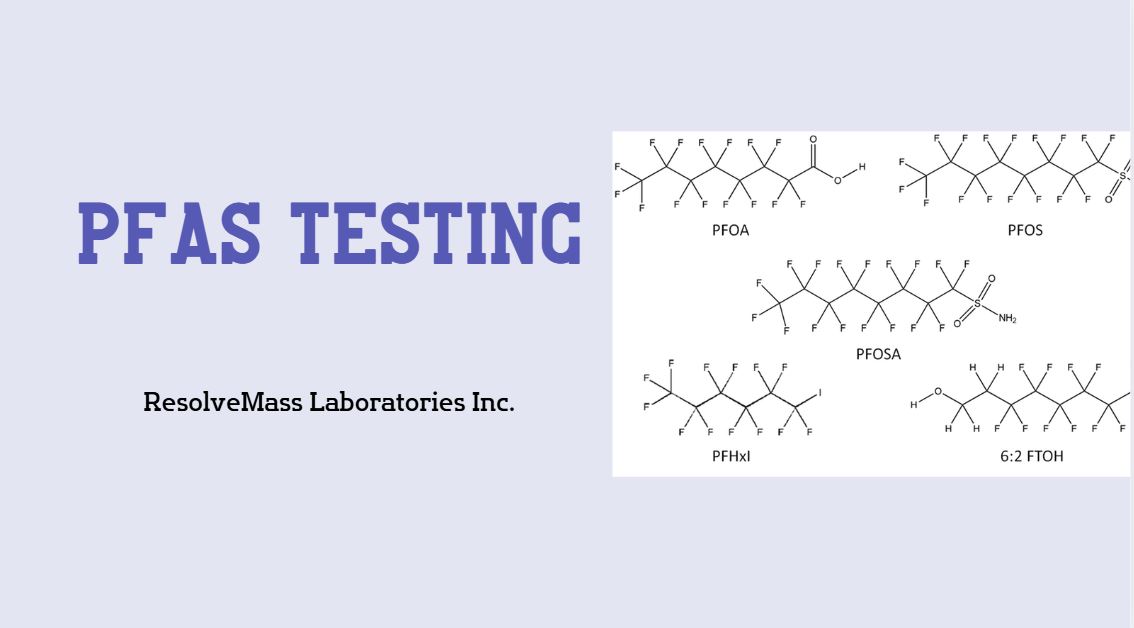In today’s competitive pharmaceutical landscape, outsourcing forced degradation studies in the United States has become a key strategy for pharma and biotech organizations looking to accelerate product development, ensure compliance, and optimize resources. ResolveMass Laboratories Inc. leads this shift by offering precision-driven, regulatory-compliant analytical services for every stage of the degradation study process.
By collaborating with a specialized partner like ResolveMass, companies gain access to advanced instrumentation, deep analytical expertise, and quality systems that ensure reliable and audit-ready results. The organization’s methodologies are aligned with FDA and ICH standards, empowering clients to maintain full confidence in their product’s stability and regulatory readiness.
This article explores why outsourcing forced degradation studies in the United States makes strategic and financial sense—and why ResolveMass continues to be recognized as one of the most trusted CROs for analytical excellence across the country.
🔍 Quick Summary
- Forced degradation studies determine the chemical stability of drugs under different stress conditions.
- Outsourcing to a trusted CRO like ResolveMass Laboratories Inc. guarantees scientific accuracy, regulatory compliance, and faster project turnaround.
- ResolveMass offers cutting-edge equipment, expert regulatory support, and specialized method development capabilities.
- Partnering with ResolveMass minimizes risk, shortens development timelines, and ensures full FDA/ICH compliance.
Explore more about our services:
HPLC Analysis | Analytical Method Development | Forced Degradation Testing in Pharma
What Are Forced Degradation Studies and Why Are They Important?
Forced degradation studies are scientific experiments conducted to assess the stability of an Active Pharmaceutical Ingredient (API) or finished product under extreme environmental conditions such as heat, light, oxidation, and pH variation.
These studies help in:
- Identifying potential degradation pathways
- Understanding molecular stability and behavior
- Supporting analytical method validation
- Meeting ICH Q1A and Q1B regulatory requirements
They are vital for predicting how products will perform during manufacturing, storage, and distribution, helping prevent late-stage failures in formulation or quality.
👉 Learn more about how degradation testing supports compliance here: Forced Degradation Testing Service in Pharmaceuticals
Why Companies Prefer Outsourcing Forced Degradation Studies in the United States
Many U.S.-based pharmaceutical and biotech firms are now choosing outsourcing forced degradation studies in the United States due to the growing need for cost-efficiency, regulatory accuracy, and faster project delivery.
Challenges such as high equipment investment, evolving FDA expectations, and the need for analytical specialization make outsourcing a practical choice. By partnering with ResolveMass Laboratories, companies can focus on innovation while experienced professionals manage the analytical and regulatory workload.
This not only ensures high-quality, reproducible data but also speeds up market entry with full compliance confidence.
Why ResolveMass Is the Leading CRO for Outsourced Forced Degradation Studies
✅ Key Advantages of Choosing ResolveMass
| Feature | Benefit |
|---|---|
| State-of-the-art HPLC, LC-MS, and GC systems | Accurate degradation profiling |
| ICH-compliant protocols | Guaranteed global regulatory alignment |
| Fast turnaround | Accelerated submissions |
| Custom method development | Tailored to each molecule |
| Dedicated scientific experts | Personalized analytical support |
Each study conducted by ResolveMass Laboratories is supported by validated data, transparent documentation, and in-depth analysis. Acting as an extension of your R&D team, ResolveMass delivers end-to-end project support—from study design to regulatory submission.
Explore our Method Development Services for complex APIs and formulations.
Analytical Expertise That Drives Every Project
Every project at ResolveMass is led by experienced analytical chemists with extensive backgrounds in method validation, impurity profiling, and degradation pathway analysis.
Following ICH Q1A (R2) guidelines, the team simulates real-world environmental stress conditions that pharmaceutical products may encounter throughout their lifecycle. This proactive approach helps identify degradation pathways early and strengthens product stability strategies.
Learn more about our Method Development for Complex APIs service.
Workflow for Outsourcing Forced Degradation Studies at ResolveMass
When outsourcing forced degradation studies in the United States to ResolveMass, clients benefit from a transparent, structured workflow that ensures precision and compliance:
- Project Consultation – Understanding the API and defining study objectives
- Experimental Design – Establishing ICH-compliant stress conditions
- Method Development & Validation – Executed through Analytical Method Development
- Study Execution – Real-time monitoring using HPLC Analysis
- Data Interpretation & Reporting – Detailed reports with impurity mapping and chromatograms
- Regulatory Support – Complete audit-ready documentation and method transfer
Each step is governed by robust internal QA systems to maintain scientific integrity and reliability.
Compliance and Quality Assurance
ResolveMass strictly adheres to Good Laboratory Practice (GLP) and ICH Q1A/B requirements in every outsourced project.
The company ensures:
- Full instrument calibration and maintenance
- End-to-end data traceability
- Complete documentation and secure archiving
- Frequent internal audits for process verification
Learn how our Method Development vs Method Validation framework strengthens compliance and quality control.
Cost and Time Efficiency of Outsourcing to ResolveMass
Outsourcing forced degradation studies to ResolveMass Laboratories Inc. provides measurable savings in both time and operational costs.
Key benefits include:
- Elimination of costly internal equipment and maintenance
- Access to multidisciplinary analytical expertise
- Reduced data integrity and compliance risks
- Improved reproducibility and streamlined submissions
ResolveMass adapts to early-stage R&D as well as late-stage commercial manufacturing needs.
Request a quote today via our Analytical Method Development Quote.
Real-World Applications of Forced Degradation Studies
ResolveMass serves multiple sectors including:
- Pharmaceuticals and Biopharmaceuticals
- Nutraceuticals and Cosmetics
- Stability-Indicating Method Development
These studies offer deep insights into shelf life, product compatibility, and formulation robustness. The Forced Degradation Testing in Pharma service by ResolveMass helps companies enhance formulation quality and maintain product consistency.
The Future of Outsourcing Forced Degradation Studies in the United States
In conclusion, outsourcing forced degradation studies in the United States has become a cornerstone for efficient, compliant, and innovative pharmaceutical development. ResolveMass Laboratories Inc. combines scientific rigor, regulatory strength, and operational agility to deliver results that meet the highest global standards.
By choosing ResolveMass, you gain more than a CRO—you gain a dedicated scientific partner focused on your long-term success.
Partner with ResolveMass today — your trusted analytical partner for stability and degradation studies.
👉 Contact ResolveMass Laboratories
FAQs on Outsourcing Forced Degradation Studies
The acceptance criteria for a forced degradation study ensure that the degradation of the drug substance or product is significant enough to generate meaningful data—typically between 5% to 20% degradation. The study should produce well-separated degradation peaks without complete decomposition, allowing accurate identification of impurities and ensuring method specificity.
Forced degradation studies are primarily guided by ICH Q1A (R2) and ICH Q1B guidelines. These documents outline the principles for stress testing, storage conditions, and stability evaluation, helping to determine degradation pathways and ensure the development of stability-indicating analytical methods.
The temperature used in forced degradation studies varies depending on the molecule’s sensitivity but generally ranges between 50°C and 80°C. The goal is to accelerate chemical reactions and simulate long-term storage conditions, allowing scientists to observe potential degradation within a short timeframe.
A systematic approach involves understanding the chemical nature of the molecule, selecting appropriate stress conditions, and designing experiments that follow ICH and FDA guidelines. Analytical techniques such as HPLC or LC-MS are then used to monitor degradation, interpret data, and validate stability-indicating methods.
The main purpose of a forced degradation study is to identify degradation products and understand the stability profile of a drug under extreme environmental conditions. This helps in developing reliable analytical methods, ensuring product quality, and supporting regulatory submissions with complete stability data.
Outsourcing forced degradation studies allows pharmaceutical companies to access advanced analytical technologies and experienced scientists without investing in expensive in-house infrastructure. It also ensures faster turnaround times, reliable data interpretation, and complete regulatory compliance through expert execution.
Common stress conditions include thermal degradation, photolysis, oxidation, and acid/base hydrolysis. These simulated environments help predict how a drug will behave during manufacturing, storage, and transportation, ensuring product stability throughout its lifecycle.
References
- Mullani, A. K., & Nargatti, P. I. (2021). Forced degradation study – A new approach for stress testing of drug substances and drug products. International Journal of Pharmaceutical Sciences & Research, 12(5), 2683-2691. https://doi.org/10.13040/IJPSR.0975-8232.12(5).2683-91
- Sutar, S. V., Yeligar, V. C., & Patil, S. S. (2019). A review: Stability indicating forced degradation studies. Research Journal of Pharmacy and Technology, 12(2), 885–890. https://doi.org/10.5958/0974-360X.2019.00152.5
- Somase, K., & Rishipathak, D. (2022). A review on forced degradation studies, stability indicating method and stability profile of few antiviral drugs. Journal of Pharmaceutical Negative Results, 13(Special Issue 1), 1315–1330. https://doi.org/10.47750/pnr.2022.13.S01.158
- Zelesky, T., & Co-authors. (2023). Pharmaceutical forced degradation (stress testing) of drug substances and drug products. Journal of Pharmaceutical Sciences. Advance online publication. https://doi.org/10.1016/S0022-3549(23)00362-3


